Contact center of the Ukrainian Judiciary 044 207-35-46
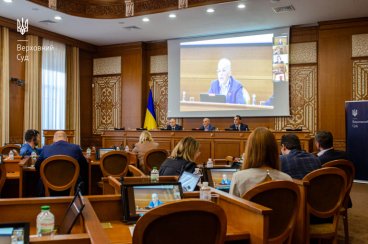
During the seminar "Nationalisation, Sanctions and International Arbitration: Consequences of the Russian Aggression in Ukraine', held at the Civil Cassation Court of the Supreme Court, Dmytro Luspenyk, Secretary of the Plenum of the Supreme Court and Secretary of the First Judicial Chamber of the Civil Cassation Court of the Supreme Court, spoke about war-related changes in the case law on the recognition and enforcement of arbitral awards, the role of sanctions imposed on the party to the arbitral proceedings, and changes in approaches to the interpretation of the concept of 'public order' in the light of sanctions legislation.
In his welcoming remarks, Dmytro Luspenyk thanked the co-organisers of the event for initiating the discussion of problematic aspects of the application of the Convention on the Recognition and Enforcement of Foreign Arbitral Awards (New York Convention), complex but important for Ukraine and the judicial system issues of nationalisation, sanctions and their impact on international arbitration in such a difficult time for the country - the period of unprovoked Russian aggression against Ukraine.
The Secretary of the SC Plenum stressed that the global security system is undergoing radical changes. Ukraine is at the epicentre of these changes. Ensuring the protection of rights and interests is the task of any legal process, including arbitration. Ukrainian courts are faced with the issue of assessing the impact of sanctions on the recognition and enforcement of arbitral awards, which is reflected in the case law of the Supreme Court. Equally important are cases on the recognition of assets as unjustified and their recovery for the benefit of the state, as well as cases on "civil forfeiture".
Oleksandr Semennykov, Head of the Appeals Chamber of the High Anti-Corruption Court of Ukraine, also delivered a welcoming speech.
He noted that the HACC is a court that considers cases involving the application of sanctions. He informed that the HACC as a court of first instance has considered 47 sanctions cases, 16 decisions of the first instance have been appealed, of which six decisions were upheld by the Appeals Chamber, seven were amended, and three are under consideration.
In addition, Oleksandr Volkov, Chairman of the Ukrainian Bar Association's Committee on Alternative Dispute Resolution, welcomed the participants of the event.
Dmytro Luspenyk delivered a presentation on ‘Imposition of sanctions and public order as grounds for refusal to recognise and enforce an arbitral award under the New York Convention’.
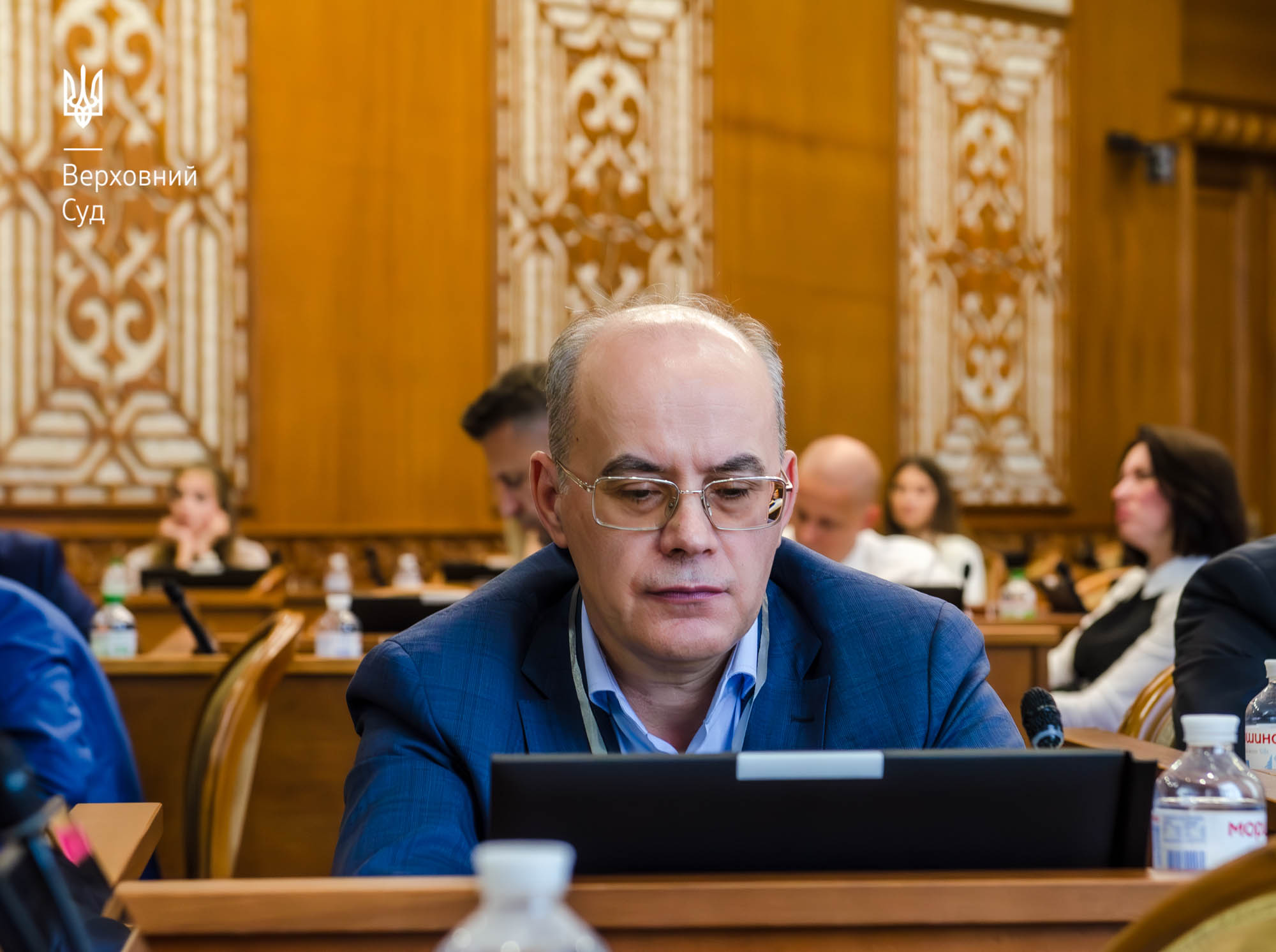
He noted that the legal regime of martial law in Ukraine, which has been in force since 24 February 2022, has significantly affected the sphere of economic, political, defence, social, labour and other legal relations, including international ones. After the next phase of Russia's armed aggression against Ukraine, the content of the public order clause in the court decisions of the Kyiv Court of Appeal and the Civil Cassation Court of the Supreme Court has been updated.
Dmytro Luspenyk focused on the role of sanctions imposed on the party to the arbitration proceedings. This new aspect of violation of public order in Ukraine emerged with the introduction of sanctions regulation as a result of Russia's armed aggression against Ukraine.
He noted that the issue of sanctions imposed on a party to arbitration proceedings may arise both at the stage of arbitration proceedings and at the stage of court proceedings to challenge the award or grant permission for its enforcement. This raises the question of how the arbitral tribunal should act if sanctions are imposed on a party to the dispute. Obviously, it cannot take such arguments into account, as otherwise the question of the arbitral tribunal's loyalty to a particular state will arise. Therefore, the application of the provisions on violation of public policy is the competence of the national court, which recognises and consents to the enforcement of the arbitral award.
At the same time, since 2014, when the Russian Federation's aggression against Ukraine began, and until February 2022, there have been two approaches in court practice:
However, after the full-scale invasion, the Supreme Court formulated a more stable position that an arbitral award made in favour of a sanctioned person, subject to certain conditions provided for by law, violates the public order of Ukraine, and therefore the court itself cannot grant permission for its enforcement.
Dmytro Luspenyk cited the Supreme Court's case law on the above issues. Thus, the Grand Chamber of the Supreme Court has recently formulated a legal position that sanctions cannot affect or restrict the procedural rights of a person. In the relevant case, the sanctioned company could not pay the court fees due to the seizure of its accounts. The Grand Chamber of the Supreme Court agreed that the payment of the court fee should be postponed, as the right to access to justice is guaranteed by the Convention for the Protection of Human Rights and Fundamental Freedoms and the imposition of sanctions should not constitute a restriction on procedural rights.
The Secretary of the SC Plenum drew attention to the landmark resolution of the CivCC of the SC of 22 December 2022 in case No. 824/138/21. A Russian company under sanctions filed a claim for recognition and enforcement of the arbitral award. The court of appeal rejected the debtor's arguments that the recognition of the award violated public order, as it concerned the execution of a contract between two business entities. The CivCC of the Supreme Court stated that the enforcement of the arbitral award would violate public order, as the Russian company was included in the sanctions list due to its involvement in the hybrid war and, as a result, sanctions were imposed and the withdrawal of capital from Ukraine in its name was prohibited. At the same time, the Supreme Court noted that the refusal to recognise and enforce an arbitral award does not terminate the civil relations between the parties.
Summing up his speech, Dmytro Luspenyk noted that the case law in this category of disputes is still being formed, just as it is being formed in cases of recognition of assets as unjustified and their recovery into the state's revenue.
Patrick Pearsall, Partner at A&O Shearman, former Chief of International Investment Arbitration at the US Department of State, moderated the first session of the event, "Arbitral Awards and Asset Freezes".
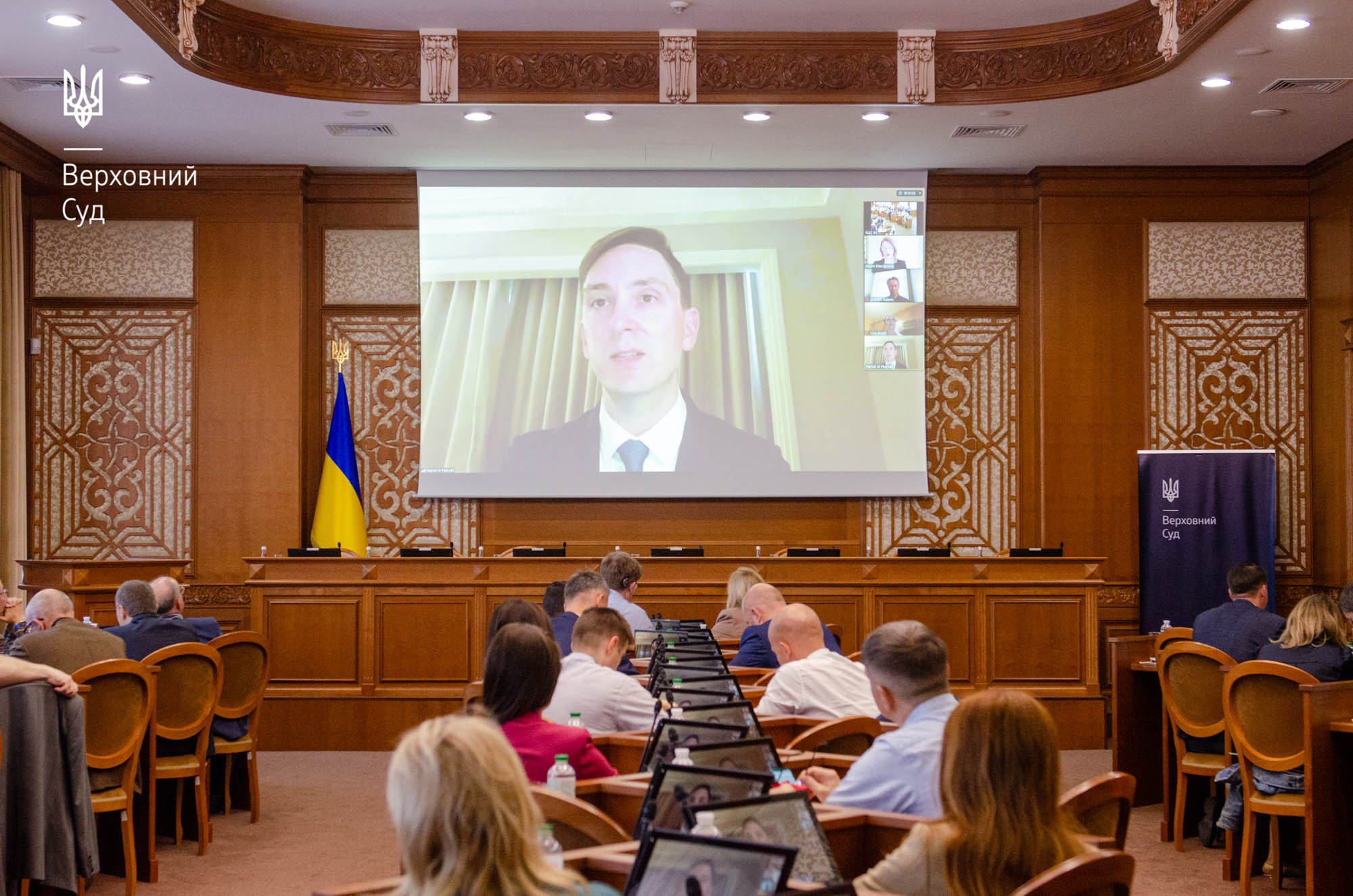
Lisa Grosz, representative of the Office of International Claims and Investment Disputes of the US Department of State, delivered a presentation.
She spoke about the consideration of cases on the recognition and enforcement of arbitral awards by the US court, how the defence in US arbitration is built, and cited the case law of US arbitration and the International Court of Justice.
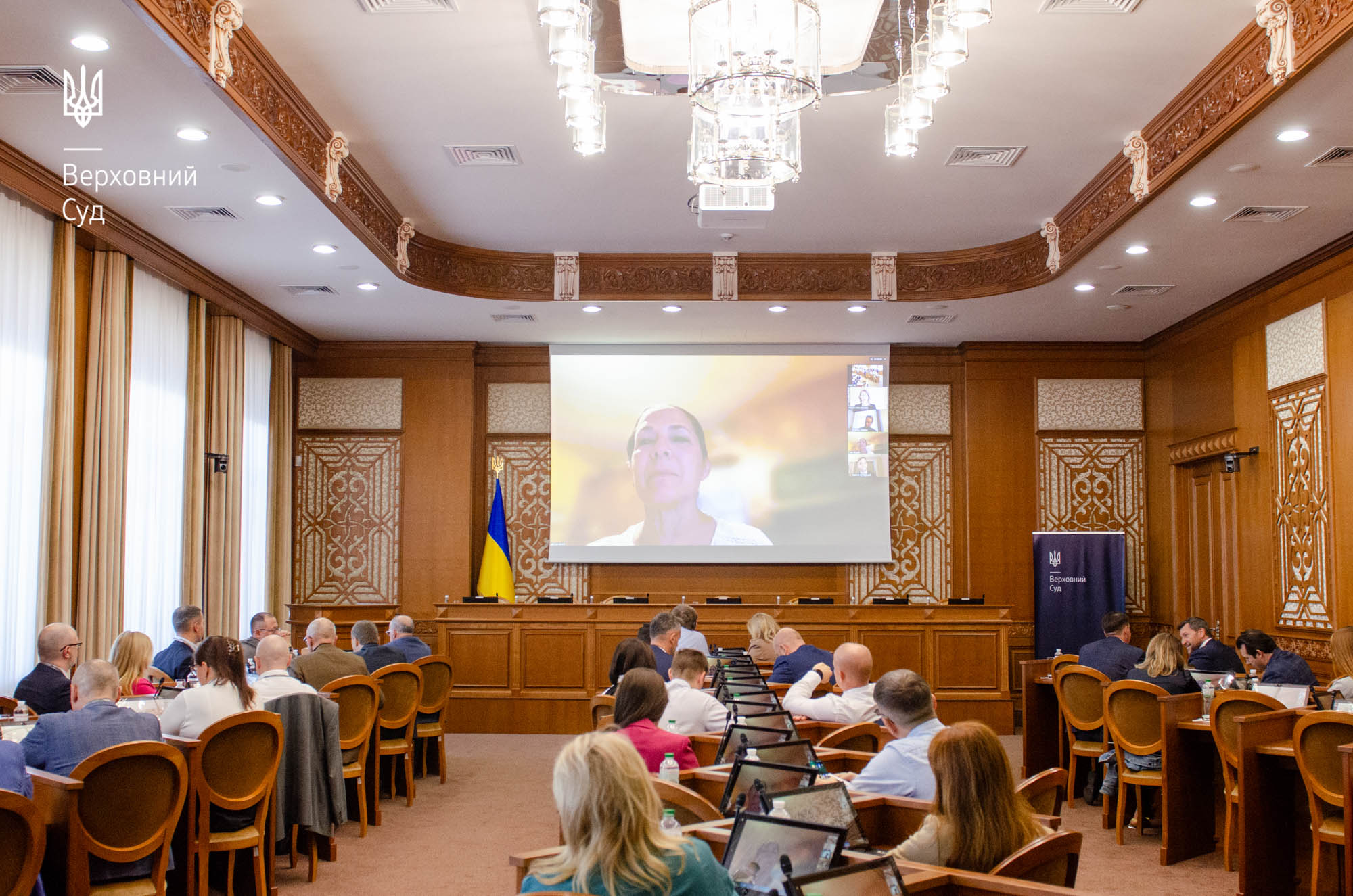
Andrew Adams, Partner at Steptoe, former head of the US Department of Justice's KleptoCapture Task Force, which deals with economic sanctions and export controls imposed in response to Russia's invasion of Ukraine, spoke about the US confiscation regime.
The speaker noted that this regime is based on the concept of illicitly acquired assets and it is very important to prove the link between the asset and the crime committed. He emphasised the difference between asset freezing as a result of sanctions and confiscation, saying that sanctions can only freeze assets, and if someone tries to deliberately evade sanctions, it is a crime, so the relevant assets can be confiscated.
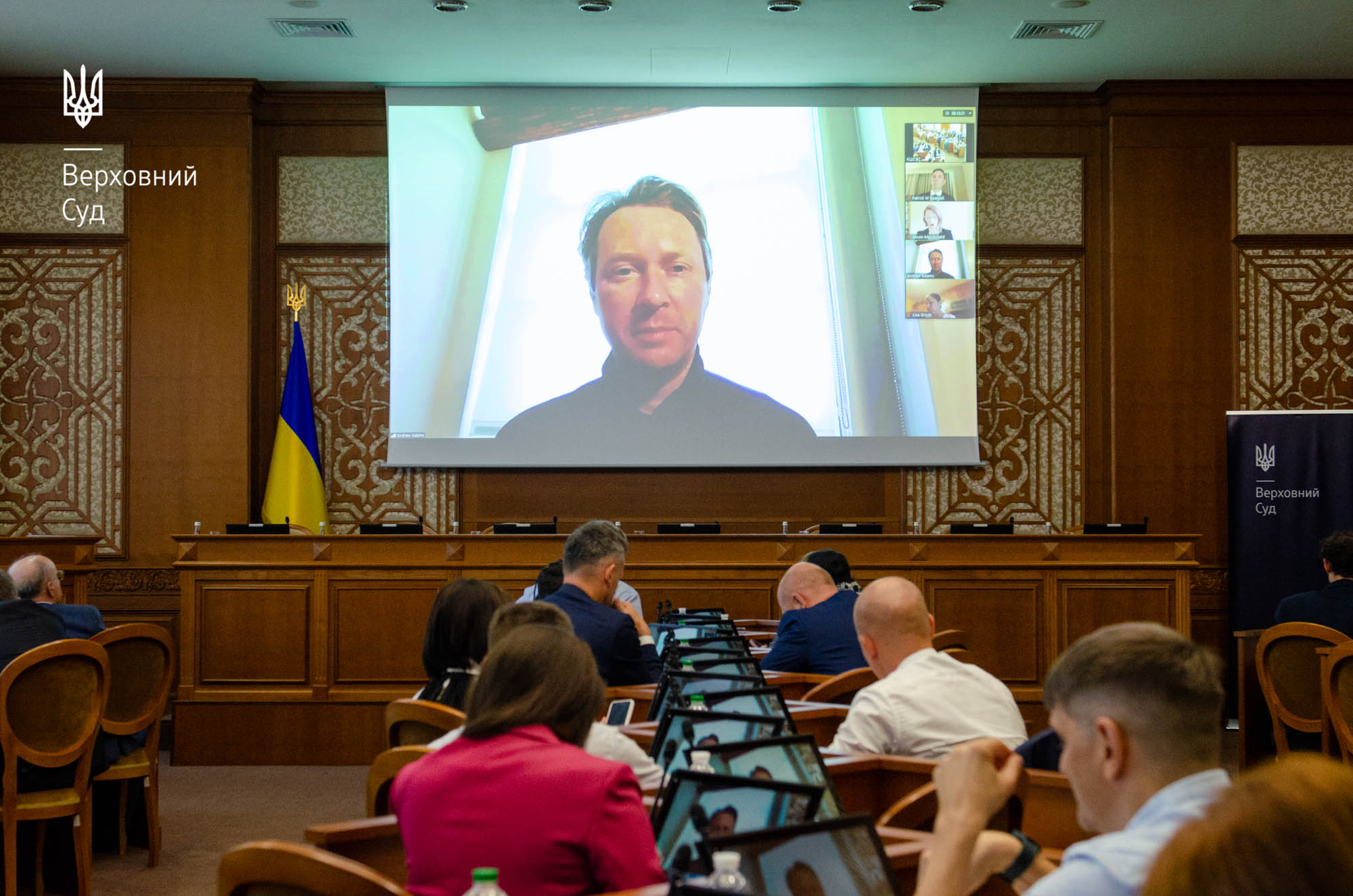
Alison MacDonald, KC, Essex Court Chambers, spoke about the English court's granting of permission to enforce arbitral awards and foreign court judgments. She noted that it is important for Ukrainian lawyers to understand the relevant procedure, taking into account the number of decisions that will be made by Ukrainian courts due to the Russian invasion. She said that the UK still benefits from EU law on the recognition and enforcement of foreign judgments.
Oleksii Kravchuk, HACC Speaker Judge, spoke about the Court's practice in sanctions matters. The speaker noted that after the full-scale invasion of sanctions legislation, the HACC was vested with the competence to consider the relevant disputes. Over the past two and a half years, the court has heard many cases and recovered many assets from sanctioned persons (shares and interests in property of enterprises, residential and non-residential vehicles, land plots, and funds). Thus, certain approaches to the consideration of relevant cases have been developed, and a list of issues to be proved and verified by the court when considering a claim of the Ministry of Justice of Ukraine against a sanctioned person has been formed.
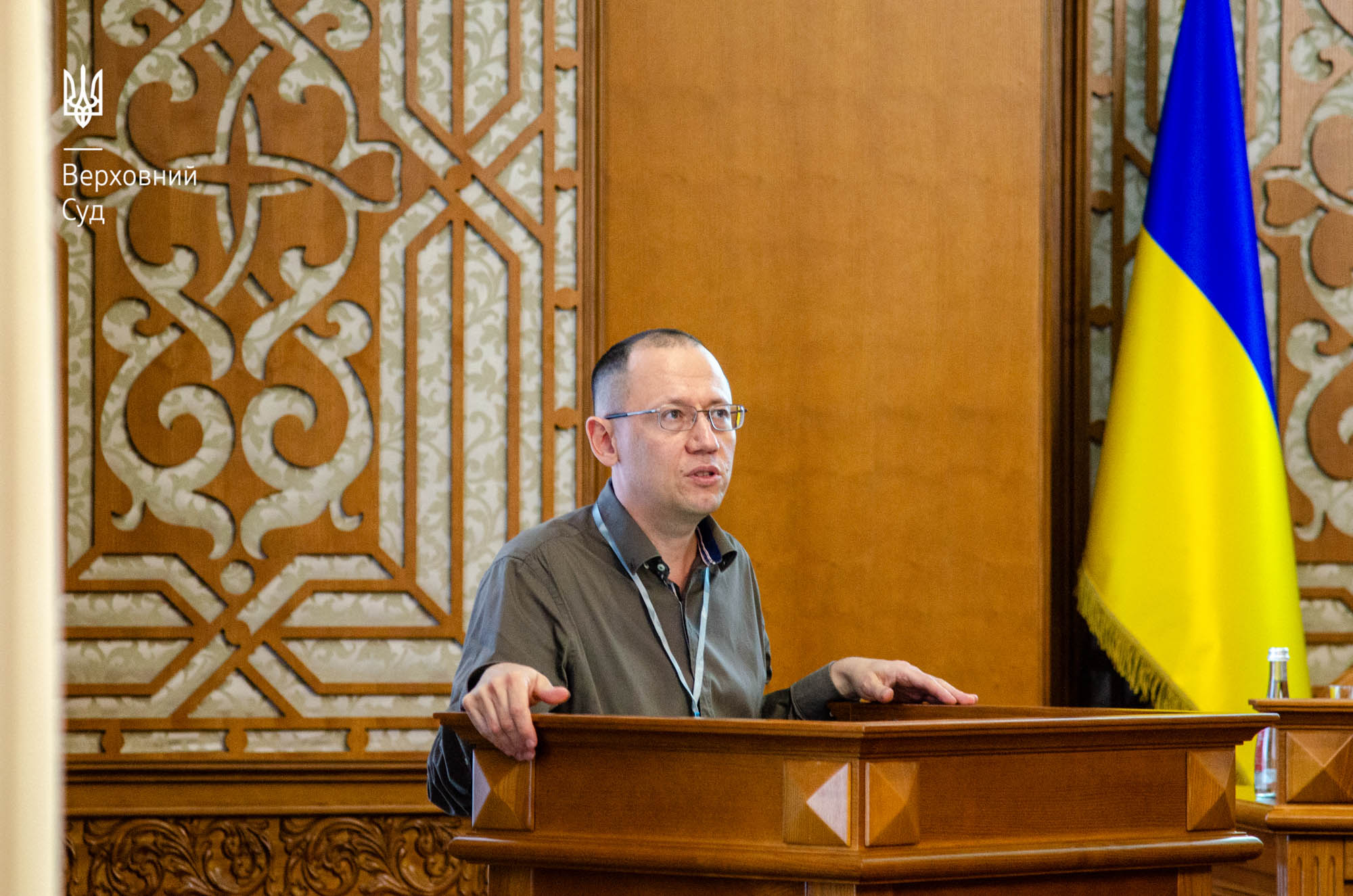
The second session ‘Sanctions, Investments and Beneficiaries’ was moderated by Wojciech Sadowski, Doctor of Law, Partner at Queritius.
Mahnaz Malik, KC, Twenty Essex, member of the ICSID Review Committee, delivered a presentation.
David Mortlock, Atlantic Council, Managing Partner at Willkie Farr & Gallagher (DC), former Director for International Economic Affairs at the White House National Security Council, spoke about the imposition of sanctions in the United States, in particular, against Russia.
He noted that before allowing the US State Department to impose sanctions, the President must declare the existence of an ‘unusual and extraordinary threat... to the national security, foreign policy, or economy of the United States’. The aggression of the Russian Federation against Ukraine provides grounds for a corresponding decision. The speaker noted that the court has never cancelled presidential acts declaring such an ‘extraordinary threat’.
After the relevant announcement, the President determines who and what sanctions are applied. The sanctioned persons may challenge their inclusion in the sanctions list in court, but there are no court decisions on satisfaction of such claims.
Alexander Scard, Legal Director at Kennedys told how the sanctions regime affects the consideration of cases on the recognition and enforcement of arbitral awards. In the UK, in 2018 (after leaving the EU), the Sanctions and Anti-Money Laundering Act was adopted. At the time, no one anticipated the widespread application of this law in the years to come.
Since the beginning of Russia's full-scale invasion of Ukraine in February 2022, this Act has been applied: 1700 Russian and foreign nationals and 300 legal entities have been included in the sanctions lists.
The seminar ‘Nationalisation, Sanctions and International Arbitration: Consequences of Russian Aggression in Ukraine’ was organised by the Supreme Court, the HACC and law firms Asters and A&O Shearman at the initiative of the UBA, the Kyiv Commercial Court with the support of the US Embassy.